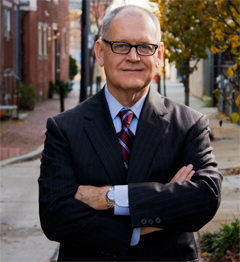This story was originally published by The Center for Public Integrity, which is a nonprofit, nonpartisan investigative news organization in Washington, DC.
It’s amazing how a little sunlight will change the behavior of some of the biggest names in corporate America — sunlight here meaning greater transparency and accountability.
It’s also amazing how the UK’s The Guardian is covering this changed behavior — and its potential consequences for every American — without much competition from US-based media. It seems that reporters in Washington in particular can’t be bothered.
Over the past several decades, one of the country’s most influential political organizations — the 40-year-old American Legislative Exchange Council — was able to operate largely under the radar. Never heard of it? That’s by design. Founded in 1973 by conservative political operatives, ALEC has been successful in shaping public policy to benefit its corporate patrons in part because few people — including reporters — knew anything about the organization, much less how it went about getting virtually identical laws passed in a multitude of states.
That began to change two years ago when an insider leaked thousands of pages of documents — including more than 800 “model” bills and resolutions, showing just how close ALEC is with big corporate interests and revealing how it goes about getting laws passed to enhance the profits of its sponsors, usually at the expense of consumers.
The Center for Media and Democracy, a nonprofit corporate watchdog organization, sifted through the documents and posted them on a dedicated website, ALECexposed.org. Those bills and resolutions, drafted by or in collaboration with industry lobbyists and lawyers, “reveal the corporate collaboration reshaping our democracy, state by state,” CMD says on the website.
I reviewed all of the health care legislation in the leaked documents and wrote about what I found for The Nation magazine in July 2011. It became clear from my review that health insurers felt one of the best ways to block the profit-threatening provisions of ObamaCare would be to use ALEC to disseminate bills it had helped write to friendly state legislators. It was also clear that ALEC’s staff and membership had been at work for more than a decade on a broad range of issues important to my former industry, from turning over state Medicaid programs to private insurers to letting them market highly profitable junk insurance.
While ALEC-member legislators hail from every state, the organization has been especially successful in getting bills introduced in legislatures controlled by Republicans. As The New York Times noted in an editorial in February, more than 50 of ALEC’s model bills were introduced in Virginia alone last year.
In addition to insurance companies like State Farm and UnitedHealthcare, ALEC’s corporate membership has included big names ranging from ExxonMobil and Wells Fargo to Johnson & Johnson and Kraft. And it has worked closely with groups like the National Rifle Association as well.
It is the organization’s association with the NRA, in fact, that has led to dozens of corporations severing their ties with ALEC, as The Guardian reported.
Soon after the NRA succeeded in pushing a stand-your-ground bill through the Florida legislature — which George Zimmerman used in his defense in the Trayvon Martin case — ALEC adopted it as a model for other states. The group took that action after a 2005 NRA presentation to ALEC’s Criminal Justice Task Force. As The Center for Media and Democracy reported, the corporate co-chair of that task force at the time was Walmart, the country’s largest seller of rifles. Since then, more than two dozen states have passed laws identical or similar to the ALEC/NRA stand-your-ground model legislation.
News coverage of ALEC’s role in getting the controversial law enacted from coast to coast — coupled with CMD-led disclosures about the organization over the past two years — has caused many of ALEC’s longtime corporate members to abandon it, according to The Guardian.
Documents obtained by the British newspaper indicate that since 2011, ALEC has lost more than 60 corporate members, a hit so severe that during the first six months of this year it has “suffered a hole in its budget of more than a third of its projected income.” It has also lost nearly 400 state legislative members during the same time frame.
The organization has launched what it refers to as the “Prodigal Son Project” to woo back companies like Amazon, Coca-Cola, GE, Kraft and McDonald’s that have dropped their membership. Another “prodigal son” ALEC hopes to welcome back: that big retailer and rifle seller, Walmart. The loss of Walmart alone undoubtedly was a major contributor to the budget shortfall, considering the size of the company.
Meanwhile, just blocks from Capitol Hill where many Washington reporters spend their days, ALEC last week held its annual “policy summit,” but very few of those reporters felt the summit was worth their time, despite the fact that Sen. Ted Cruz (R-TX) and Rep. Paul Ryan (R-WI) were on the agenda. And despite the fact that even with fewer resources, ALEC is still hugely influential in shaping public policy. As Nancy MacLean, professor of history and public policy at Duke University, noted in a May column for North Carolina Policy Watch, “What ALEC and the companies that provide it with millions in operating funds seek is, in effect, a slow-motion corporate takeover of our democracy.”
That might be a story worth covering.


